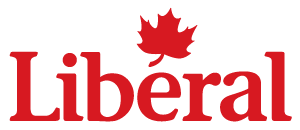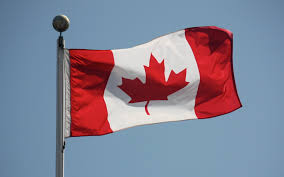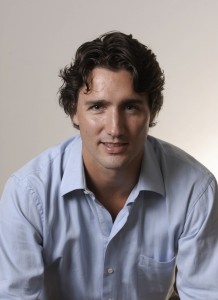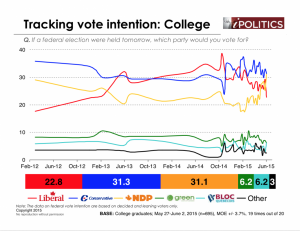In light of the price of oil collapsing to $36/barrel ($80 is the break even point for most Oil Sands oil in Canada), I thought it was worth revisiting this article on Dutch Disease, originally published in May of 2012. I’ll have more on the Canadian economy and how oil prices are affecting everyone else soon.
It seems a lot of people don’t know what Dutch Disease is. Here’s the short:
Dutch disease is when you sell a lot of resources, which increases your currency’s value. So if you discover a lot of oil, or oil becomes a lot more valuable due to a shortage, but you can produce tons of oil from the tar sands, you can experience Dutch Disease.
The consequence of your currency being worth more is that products you manufacture cost more for anyone outside your country. So, if Americans want to buy Canadian goods, it costs them more when the US and Canadian dollar are trading at about even than when the Canadian dollar cost only 80 cents American.
If something costs more, people will buy less of it, or they will stop buying from you entirely and buy from someone else who is cheaper.
What happened to the Dutch is that their manufacturing sector collapsed. What Canada’s NDP leader Thomas Mulcair is saying is that Canada is suffering from Dutch Disease. He says we are losing manufacturing jobs due to the higher value on the Canadian dollar caused by all the oil from the oil sands we’re shipping out of the country, which raises value of the Canadian dollar.
I observed, many years ago, that the Canadian dollar had become a petro-currency. This is now inarguable.
It is also virtually inarguable that Canada is losing manufacturing jobs due to the higher dollar. It’s just arithmetic. Unless you think price has no effect on sales, you can’t argue otherwise without creating excessive contortions.
Does this mean that Canada is suffering from Dutch Disease? It depends where you put the margin. One study, funded by the federal government, found that:
“We show that between 33 and 39 per cent of the manufacturing employment loss that was due to exchange rate developments between 2002 and 2007 is related to the Dutch Disease phenomenon,” says the study.
I am unaware of studies covering the subsequent period, and I don’t know if the study was correct. Personally, I suspect it’s higher than that, but I haven’t run the numbers myself and I probably won’t (unless the Feds want to pay for my time).
But, again, the argument is simple enough. Unless you don’t believe in higher prices reducing sales, and reduced sales leading to job losses and company closures, you can’t really argue that the oil sands aren’t hurting manufacturing. It’s just that simple.
The next question is: “Should we do anything about it?”
Canada has traditionally had what is known as a “mixed economy.” When it comes to exports, we have both manufacturing and resource sectors, the latter of which oil is just one part. Resources experience boom and bust cycles. There is always another resource bust around the corner. Always. No resource’s prices stay high forever. When resources are doing well, they support our exports.When they’re doing badly, manufacturing takes up the slack.
As with any such oscillating economy, what should be done is that when one is booming, it subsidizes the other. We don’t want manufacturing destroyed during high resource price periods, because there will always be low resource prices in the future. So we tax the high resource prices and we subsidize manufacturing. When resource prices collapse, the manufacturing sector subsidizes the resource sector.
If we allow the manufacturing sector to become badly damaged, it cannot be easily rebuilt when resource prices collapse. Nations built entirely on resources are, and will always be, subject to economic collapse when the resource prices collapse, and, again, they always do–the only question is when.
Mulcair has also talked about value-add and that’s worth discussing. Shipping raw oil, raw logs, and unprocessed fish means you get the lowest prices possible and less jobs. Value-add means you refine the oil in Canada and sell it. You turn the logs into paper or 2x4s in Canada. You can smoke the salmon in Canada. This provides jobs and the end goods sell for more. It may be that processing “in-house” will increase the price slightly compared to outsourcing the processing to the US or China, but that costs less sales than it would for the equivalent manufactured item.
Why? Because resources are finite. There is only so much oil in the world at any given price point. There are only so many salmon, especially wild salmon. There are only so many trees, especially trees that are good for construction-grade timber. Other countries will generally buy these resources anyway, because there is nowhere else to get the product. Sales may decline slightly, but profit often increases and so do the number of Canadian jobs.
When there is a bottleneck, as there is in oil production right now, especially, you can say, “No, we’re going to process it here.” If other nations don’t like it, tough. They aren’t going to stop heating their houses and driving their cars to their suburban homes. That is not happening.
So if you can extract a bit less oil, make more money overall, and have more jobs, why not do so? That’s what Mulcair means by “value-add.”
Finally, let’s move to cap and trade, which is what Mulcair wants to do with the tar sands. Cap and trade means you cap the amount of carbon emissions allowed by oil sands extraction, and you allow people to buy and sell the rights to make those emissions. You also tax those trades and emissions. You then use the money earned to subsidize manufacturing, research, and whatever else will support the future of the country when oil prices collapse, which, again, they will, because resource booms always end, it is an existential certainty.
Once upon a time, the Canadian Maritimes were a resource boom area. They sold fish, but, more importantly, they sold trees which could be made into masts, an incredibly valuable commodity. Today, with pardon to my Maritime brethren, the Maritimes are in semi-permanent depression.
This is the future that Alberta faces. They should want to be taxed, and they should want that money reinvested in other sectors, because those sectors are Alberta’s future long after the oil boom ends. And the massive environmental destruction is incurring massive costs with which future generations will have to contend, long after the boom days are gone.
Canada’s economy has worked, and we have not become Argentina (the country we would have been compared to before WWII) because of our mixed economy. It is worth protecting, and it is necessary to protect, if we want prosperity not now, but ten years, 20 years, or 50 years from now. If we care about our children, or even ourselves 20 years from now, we must deal with the effects that the massive exploitation of the oil sands is having on our economy and our environment.
Dutch disease is just arithmetic. It is real, and it can devastate the future of a country. Non-renewable resources are the epitome of found money, and what you do with found money is invest it in something productive–something that will yield a return, something which will support you once that found money runs out.
This is Canada, and this is our future we’re talking about. If we actually care about the children we claim to love, we’ll acknowledge the simple arithmetic of what a high dollar does, and we’ll act to mitigate the damage.
(Update: Antonia Zerbisias had an article in February on Dutch Disease studies which is worth reading.)
If you enjoyed this article, and want me to write more, please DONATE or SUBSCRIBE.




